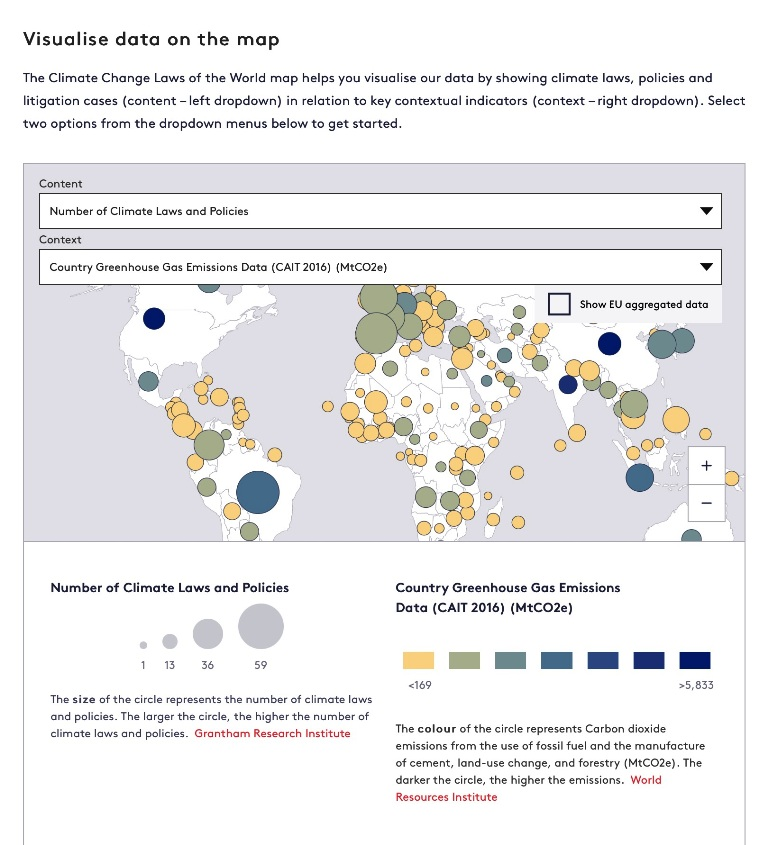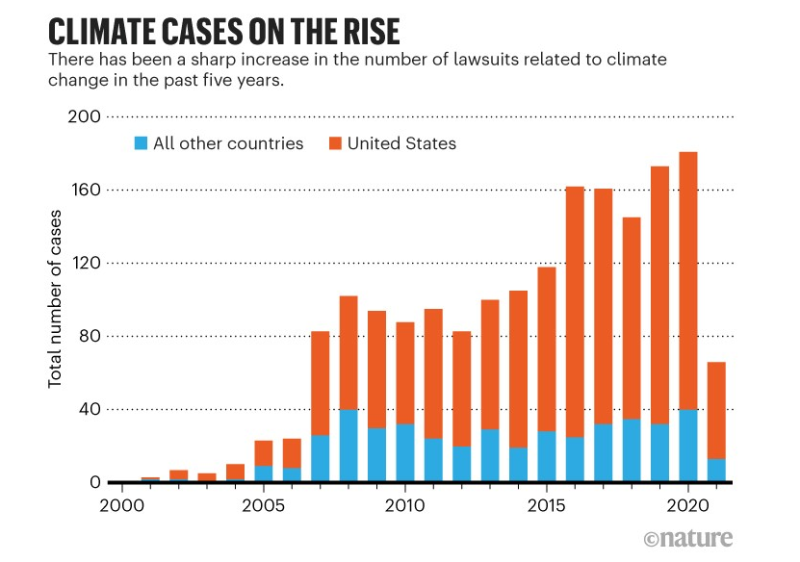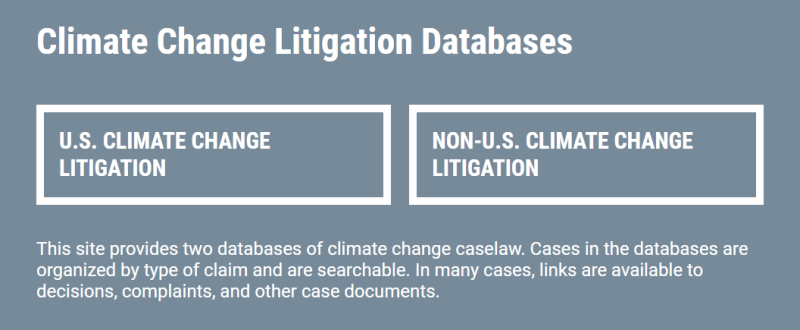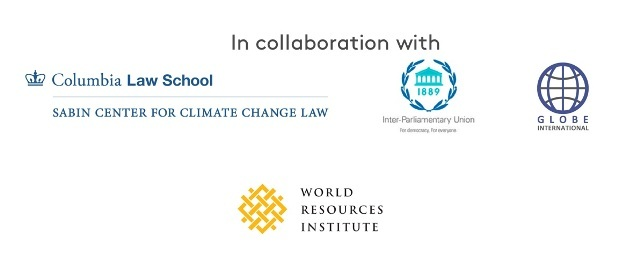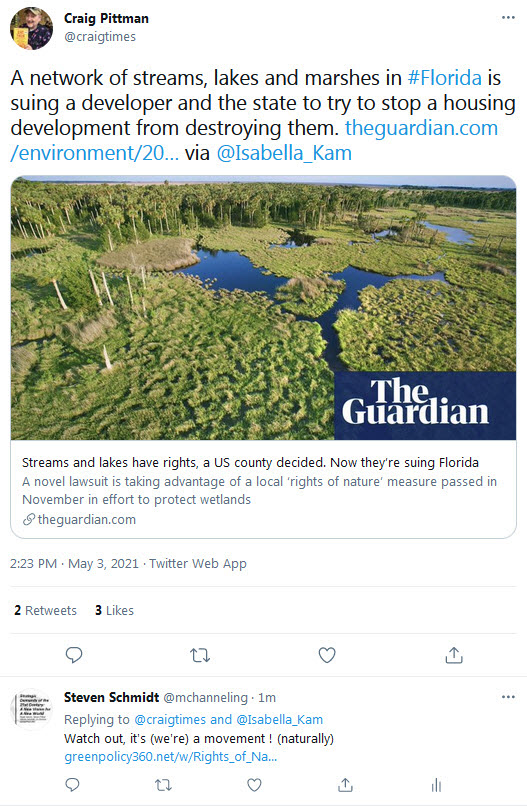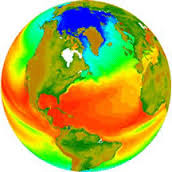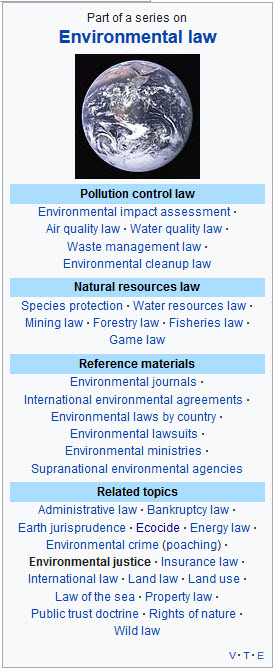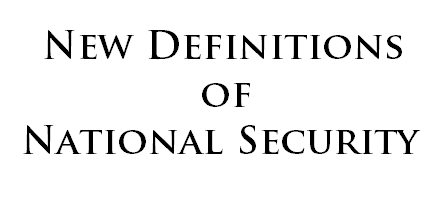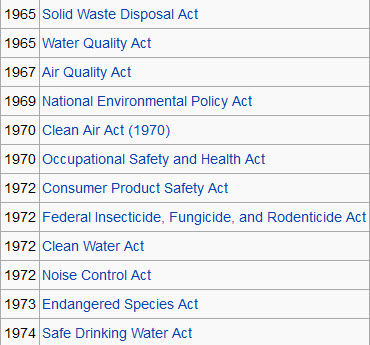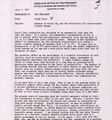Category:Environmental Laws
<addthis />
- International Environmental Law: A Body of Laws and Regulations in the Process of Development
- Environmental Laws @GreenPolicy360 -- https://www.greenpolicy360.net/w/Category:Environmental_Laws
🌎
GreenPolicy360 Siterunner:
Witness to an Environmental Movement, 1960s to the 2020s, a Generational Challenge
First came discovery, purposefully gathering the facts and data of environmental disruption, earth and atmospheric science, biodiversity and loss of habitat, loss of life, global warming and climate change;
Followed by decades of green activism making the case for environmental protection/environmental security, advancing new definitions of national and global security using the data now attesting to the scope of the problem, the immediacy of the threat, and challenge of overcoming deniers, naysayers and obstructionists;
Now we can see clearly, from the first international environmental protection gathering and resulting plan, the Stockholm Declaration of 1972 until today, with some 200 individual national (intended and determined) climate/environmental plans put forward after the Paris (2015) and Glasgow international summits (2021), that the clock is running behind. The times call for "Climate Plans Enforcement".
Climate Plans Enforcement - Resources
From Then until Now... and What Happens Next
In the early years of the modern environmental movement, a conscious effort was made to construct a foundation of environmental laws and regulations on which a multi-year environmental protection framework could be built. Your GreenPolicy360 founder was one of those who believed in this constructive paradigm, using model legislation that could be locally developed, often in our state of California, then shared, 'exported' as we used to say, 'to the Feds' for adoption at the national level. The history here provides an ongoing modus operandi from the 60s and 70s until now as we deal with the pressing local, national, and international/global environmental threats and crises. We, at GreenPolicy360, call this "green best practices". Best practices is a model for sharing, networking, building on success and action. Templates and models, best practices made openly available, are our plans for having multiplier effects -- and it is our ongoing mission. A strong and resilient legal foundation and framework of environmental laws is an essential part of our overall work. We encourage you to join in as citizens of every nation, within your multiple and diverse legal systems and, we must add, as planet citizens. It is time for concerted planet citizen action.
🌎
Climate Change Laws & Lawsuits
🌎
Climate-Related Laws/Statutes, Ordinances, Regulations, Rules | Law Making & Rules Making
🌎
Global Stats|Trends in Climate Change Litigation
Reported via Wikipedia / MediaWiki collaboration
🌎
Climate Change Laws of the World
Climate Change Laws via Grantham Institute, UK (Current)
About ClimateLaws.org
Climate Change Laws of the World and Climate Change Litigation of the World build on more than a decade of data collection by the Grantham Research Institute at LSE and the Sabin Center at Columbia Law School.'
Climate Change Laws of the World covers national-level climate change legislation and policies globally. The database covers climate and climate-related laws, as well as laws and policies promoting low carbon transitions, which reflects the relevance of climate policy in areas including energy, transport, land use, and climate resilience.
Climate Change Litigation of the World features climate litigation cases from over 40 countries. These cases raise issues of law or fact regarding the science of climate change and/or climate change mitigation and adaptation policies or efforts before an administrative, judicial or other investigatory body. This dataset does not include the United States – to access information about climate change litigation in the US, please click here to go to the Sabin Center / Arnold & Porter Kaye Scholer database. This will take you to a different website and will open in a new window.
This database originates from a collaboration between the Grantham Research Institute and GLOBE International on a series of Climate Legislation Studies. Use and reference of the data.
The Grantham Institute encourages the use of this database. Users are welcome to download, save, or distribute the results electronically or in any other format, without written permission of the authors.
For data drawn directly from the Grantham and/or Columbia database, reference the source as follows: Climate Change Laws of the World database, Grantham Research Institute on Climate Change and the Environment and Columbia Law/Sabin Center for Climate Change Law.
Via Grantham Research Institute on Climate Change and the Environment
Key messages about climate change litigation (as of 2021)
• Climate change litigation continues to grow in importance as a way of either advancing or delaying effective action on climate change.
• Globally, the cumulative number of climate change-related cases has more than doubled since 2015. Just over 800 cases were filed between 1986 and 2014, while over 1,000 cases have been brought in the last six years.
• The number of ‘strategic’ cases is dramatically on the rise. These are cases that aim to bring about some broader societal shift.
• Not all strategic litigation is aligned with climate goals. However, not all strategic cases that are not aligned with climate goals are motivated by an intention to prevent climate action.
• Litigation that is aligned with climate goals is on balance seeing success and there has been a run of important wins in the last 12 months, such as the Milieudefensie v. Shell case.
• The number of cases challenging government inaction or lack of ambition in climate goals and commitments continues to grow, with 37 ‘systemic mitigation’ cases identified around the world.
• Cases are targeting a wider variety of private sector and financial actors and there is more diversity in the arguments being used, for example incorporating themes of greenwashing and fiduciary duty. Businesses need to be aware of litigation risk.
• Three areas to watch in the future are value chain litigation, cases of government support to the fossil fuel industry (e.g. through subsidies or tax relief), and cases focused on the distribution of the burdens associated with action, which may be classed as ‘just transition’ cases.
🌎
Columbia University / Climate Lawsuit Tracking
Climate Change Litigation Databases
Global Climate Change Litigation database
U.S. Climate Change Litigation database
Climate Law Blog / Columbia Law School
About Columbia's U.S. and Global Climate Change database (2022)
The U.S. Climate Change Litigation database is a joint project of the Sabin Center for Climate Change Law at Columbia Law School and Arnold & Porter. Michael B. Gerrard, then a partner at Arnold & Porter and now Faculty Director of the Sabin Center, and J. Cullen Howe, an environmental law specialist at Arnold & Porter, first created the U.S. Climate Litigation Chart in 2007. In 2017, it was relaunched as an interactive and searchable database. The U.S. chart is updated on a monthly basis, and currently includes 1404 cases* with links to 8925 case documents.
The Global Climate Change Litigation database was created in 2011 and is updated regularly. It currently includes 560 cases, with links to 1066 case documents. At present, the Global database features cases from over 40 countries. The database also includes climate litigation cases brought before international or regional courts or tribunals.
Case Categories
SUITS AGAINST GOVERNMENTS
- Access to Information
- Environmental Assessment and Permitting
- Failure to Adapt
- GHG Emissions Reduction and Trading
- Human Rights
- Just Transition
- Protecting Biodiversity and Ecosystems
- Public Assembly
- Public Trust
- Trade and Investment
Browse Litigation by Country - Jurisdiction
- Argentina
- Australia
- Austria
- Belgium
- Brazil
- Canada
- Chile
- Colombia
- Czech Republic
- Denmark
- Ecuador
- Estonia
- France
- Germany
- Guyana
- India
- Indonesia
- Ireland
- Italy
- Japan
- Kenya
- Luxembourg
- Mexico
- Nepal
- Netherlands
- New Zealand
- Nigeria
- Norway
- Pakistan
- Papua New Guinea
- Peru
- Philippines
- Poland
- Slovenia
- South Africa
- South Korea
- Spain
- Sweden
- Switzerland
- Taiwan
- Uganda
- Ukraine
- United Kingdom
Additional Government Organizations-Related Climate Change Litigation
- East African Court of Justice
- European Committee on Social Rights
- European Court of Human Rights
- European Union
- Inter-American System of Human Rights
- International Centre for Settlement of Investment Disputes
- International Courts & Tribunals
- Permanent Court of Arbitration
- Stockholm Chamber of Commerce
- United Nations
- World Trade Organization
🌎
Via Carbon Brief (2017)
Climate Change Laws Around the World
There has been a 20-fold increase in the number of global climate change laws since 1997, according to the most comprehensive database of relevant policy and legislation.
The database, produced by the Grantham Research Institute on Climate Change and the Environment and the Sabin Center on Climate Change Law, includes more than 1,200 relevant policies across 164 countries, which account for 95% of global greenhouse gas emissions.
The database shows the extent to which climate change legislation has permeated global political discourse, as well as variations in approach between developed and developing countries. You can explore the database via their interactive map...
As well as the database listing individual laws and policies, there are also narratives for each of the 164 countries covered (you can navigate to these country profiles).
Visit https://climate-laws.org/
🌎
Environmental Rule of Law: First Global Report - UN / UN Environment Programms (2019)
"Weak enforcement ... a global trend"
The Difficulties of Enforcing Global Environmental Law via Georgetown Law Review
🌎
Environmental Law - an Overview via Duke Law
Guide providing an overview of federal, North Carolina-specific, and international environmental law sources. For additional sources, including different state materials, researchers may wish to consult other relevant research guides and portals such as Vermont Law School's Environmental Law Research Resources, and/or the Environmental Law guide prepared by Lewis & Clark Law School's Paul L. Boley Law Library
🌎
International Environmental Law via the American Bar Association
Profound environmental changes caused by the increasing scale of human activity have led many observers to conclude that the planet has entered the “Anthropocene”—a geologic era signified by human impact on the biosphere. International environmental law is the set of agreements and principles that reflect the world's collective effort to manage our transition to the Anthropocene by resolving our most serious environmental problems, including climate change, ozone depletion and mass extinction of wildlife. More generally, international environmental law aims to achieve sustainable development—i.e., development that allows people to have a high quality of life today without sacrificing the quality of life of future generations. International environmental law is thus critical both for addressing specific environmental threats and for integrating long-term environmental protection into the global economy...
🌎
GlobalEnvironmentalLaw.com
The Global Environmental Law website was maintained by Prof. Robert Percival of the University of Maryland Carey School of Law.
The Global Environmental Law introduction to the online site captures the importance of sharing environmental laws -- 'transplanting law and regulatory policy innovations'.
"Globalization is transforming law and legal education. Nowhere is this more evident than in the field of environmental law. Environmental problems are viewed increasingly as transcending national borders and some—including global warming and climate change—pose significant risks to the very health of the planet. As a result, law has become a critical part in the efforts to combat global environmental problems and improve global living conditions."
"Legal systems across the globe are responding to environmental concerns in surprising new ways. Throughout the world, nations are upgrading their environmental standards. As they do so, they are frequently transplanting law and regulatory policy innovations derived from the experience of other countries, including nations with very different legal and cultural traditions."
- https://globalenvironmentallaw.com/blog/ (suspended posting in 2020)
🌎
Global Environmental Law via Cambridge University
October 2019
Global Environmental Law: Context and Theory, Challenge and Promise
🌎
Climate Law / Legal Resources
World Commission on Environmental Law
- IUCN Global Environmental Law Network
IUCN (International Union for the Conservation of Nature) Academy of Environmental Law
The Academy is a consortium of educators from 214 academic institutions in 60 countries dedicated to improving the teaching, development and implementation of environmental law…
··································
GreenLaw360
In the U.S.
2021
In Florida, expanding Environmental Law with a Rights of Nature lawsuit...
🌎
Climate News
Time to act to make a positive difference
Strategic Demands
- https://unfccc.int/process-and-meetings/the-paris-agreement/nationally-determined-contributions-ndcs/nationally-determined-contributions-ndcs
- https://www.wri.org/ndcs/tracking-progress
- https://www.climatewatchdata.org/2020-ndc-tracker
- https://climateactiontracker.org/
- https://carbon-pulse.com/ndcs/
🌎
2020
With the election of Joe Biden, the environmental legal landscape emerges from an historic four years of environmental laws and rules rollbacks under the Trump presidency...
Environmental Laws, Regulations and Executive Actions
Tracking 2016-2020 U.S. Climate Actions under the Trump Presidency
Environmental Models -- Laws/Rules/Regulations/Templates and Practices -- for the World Is Setback during Crucial Years
- A List of Organizations Tracking US Environmental 2016-2020 Rollbacks
- Brookings - Deregulatory Tracker
- Brookings on Trump's Environmental Dereg. Record
- Climate Deregulation Tracker
- Columbia Law School - Climate Change Laws
- Columbia Law - 'Silencing Science' Tracker
- GreenPolicy360 - Environmental Laws
- GreenPolicy360 Climate Litigation Database
- Harvard Law - Trump Envir Law Rollbacks
- NYT - Trump Envir Rollbacks
Environmental Turnaround in the U.S.: Rebound with Caveats
- https://www.washingtonpost.com/graphics/2021/climate-environment/biden-climate-environment-actions/ | 2021 - Tracking Biden Climate Actions
~
An Unprecedented Presidency: The Trump Administration Damage to Democracy, Damage to the Environment
Historic Environmental Protection Cuts
Retreat from Treaties, Environmental Agreements, and Abandonment of International Cooperation on Climate
Decades of US Green Progress Attacked
Collapse of Environmental Laws and Policy Framework
List of Organizations Tracking Trump Administration Environmental Protection Rollbacks
Read about the Trump Environmental Rollbacks
Decades of environmental protection devastated. Polluters celebrate. Oil/gas pushes CO2 with fracking technology. US government climate action collapses.
Law & Environment, Protection & Retreat
The Future of International Environmental Governance
Experts have highlighted a clear legal challenge: international environment law is fragmented in many conventions and international declarations...
The Global Pact for the Environment will be the first international legally binding document, gathering and harmonizing all environmental laws in one single document. Its objective is to be an essential tool for governments to help them implementing environmental rules and principles in their own country.
- New Vision for a Connected World
- National & Global Security, Indivisible
New Definitions of National Security @GreenPolicy360
Environmental Security & "Thin Blue"
New Definitions of National Security @StrategicDemands
·······································································
Environmental Law / United States
Trump administration rushes forwRd with its anti-environmental law and dismantling of community health, protection and planning'
2020 witnesses a presidential administration attemptint to dismantle 50 years of environmental protection laws
(CNN) Here's a list of many of the major environmental rollbacks the Trump administration has attempted to undertake.
Oil, natural gas, methane and power;Automobiles; Public lands; Water; Wildlife; Agriculture...
Read about the U.S. U-turn...
- ·····················································
Earth Science, Advances and Setbacks
The 2016 U.S. election was a 'turn-back-the-clock' election result. Environmental laws passed with success over decades are being dismissed under Trump attack and a short-sighted, 'short-termism'. Pushing an agenda that deconstructs achievements of a previous generation, a U.S. President is leaving a damaging legacy. Every week seems to bring the announcement of another set-back to a green, environmental platform.
We should consider again the beginning of the green era in the U.S. and successive accomplishments in law and practice that clearly deserve to be built upon, not to be dismantled by retro-policies.
95 Environmental Rules Being Rolled Back Under Trump
US Environmental Laws Rollback Tracker
One Environmental Law Rollback
"This will be the biggest loss of clean water protection the country has ever seen," said Blan Holman, an attorney with the Southern Environmental Law Center.
The new measure will roll back Obama-era "Waters of the United States" (WOTUS) regulations aimed at ensuring wetlands and streams are protected under the 1972 Clean Water Act, which the Trump Environmental Protection Agency has repeatedly targeted.
"This puts drinking water for millions of Americans at risk of contamination from unregulated pollution," said Holman. "This is not just undoing the Obama rule. This is stripping away protections that were put in place in the '70s and '80s that Americans have relied on for their health."
As the New York Times reported in January 2020, the Trump rule "will remove federal protections from more than half the nation's wetlands, and hundreds of thousands of small waterways."
"His administration had completed the first step of [the WOTUS regulation's] demise in September with the rule's repeal," the Times reported. "His replacement will complete the process, not only rolling back 2015 rules that guaranteed protections under the 1972 Clean Water Act to certain wetlands and streams that run intermittently or run temporarily underground, but also relieves landowners of the need to seek permits that the Environmental Protection Agency had considered on a case-by-case basis before the Obama rule."
Trump and EPA chief Andrew Wheeler, a former coal lobbyist, touted the rule at the American Farm Bureau Federation's annual convention in Texas.
🌎
US acts to unravel environmental protections as president is impeached and another war is imminent
Trump administration attacks the 'Magna Carta' of US Environmental Protection, the NEPA Act
Update: April 19, 2022, shortly before the April 22nd Earth Day ... The Biden administration acts to reinstate and enhance NEPA. The Trump administration's rejection of NEPA environmental law, regulations/rules is addressed with executive orders.
Via the NY Times / NEPA is back ... Biden Restores Climate to Environmental Law, Reversing Trump -- https://www.nytimes.com/2022/04/19/climate/biden-climate-nepa-trump.html -- "Biden Restores Climate to Landmark Environmental Law, Reversing Trump" ...
The Biden administration announced Tuesday that it is restoring parts of a bedrock environmental law, once again requiring that climate impacts be considered and local communities have input before federal agencies approve highways, pipelines and other major projects.
The administration has resurrected requirements of the 50-year-old National Environmental Policy Act that had been removed by President Donald J. Trump, who complained that they slowed down the development of mines, road expansions and similar projects.
The final rule announced Tuesday would require federal agencies to conduct an analysis of the greenhouse gases that could be emitted over the lifetime of a proposed project, as well as how climate change might affect new highways, bridges and other infrastructure, according to the White House Council on Environmental Quality. The rule, which takes effect in 30 days, would also ensure agencies give communities directly affected by projects a greater role in the approval process.
Brenda Mallory, chairwoman of the council, described the regulation as restoring “basic community safeguards” that the Trump administration had eliminated.
“Patching these holes in the environmental review process will help projects get built faster, be more resilient, and provide greater benefits to people who live nearby,” she said in a statement.
·······································································
National Environmental Policy Act
··························
January 2020:
NEPA is often said to be the Magna Carta of the environmental movement...
Trump's Losing Record on Energy and the Environment
Pushing Fossil Fuels, Emissions and Consequences
○
Local Clean Water News / Politics
Fox News US ridicules local efforts to cut back on single-use plastic un-recycled household items
As US Clean Water Act Is Undercut by Fox-supported US president, a first study of 'Tampa Bay Plastic Pollution' reveals '4 Billion Microplastic Particles'
·········
The modern environmental movement
Environmental protection to build on
Environmental Protection, a First-Generation of Builders of an Environmental Legacy
Rep. George E. Brown and the generation who envisioned and created the first auto emission, clean air standards and foundational US state and national environmental standards...
Memories on the Road to the First Earth Day
• https://www.greenpolicy360.net/w/Earth_Day_Memories_on_the_50th_Anniversary
• https://www.greenpolicy360.net/w/Category:Earth_Day
○
Environmental Law / Global / International
Californian and US models of environmental legislation go international
List of International Environmental Agreements
○
Montreal Protocol, the beginning of international environmental law
* https://en.wikipedia.org/wiki/Montreal_Protocol
Due to its widespread adoption and implementation it has been hailed as an example of exceptional international co-operation, with Kofi Annan quoted as saying that "perhaps the single most successful international agreement to date has been the Montreal Protocol" ... When comparing this very success story with attempts to establish an international policy on the Earth's climate or atomic energy, the entire process from a problem formulation to a global acceptance supported by a legal framework took less than a quarter of a single human generation live span.
Among the treaty's accomplishments are: The Montreal Protocol was the first international treaty to address a global environmental regulatory challenge; the first to embrace the "precautionary principle" in its design for science-based policymaking; the first treaty where independent experts on atmospheric science, environmental impacts, chemical technology, and economics, reported directly to Parties, without edit or censorship, functioning under norms of professionalism, peer review, and respect; the first to provide for national differences in responsibility and financial capacity to respond by establishing a multilateral fund for technology transfer; the first MEA with stringent reporting, trade, and binding chemical phase-out obligations for both developed and developing countries; and, the first treaty with a financial mechanism managed democratically by an Executive Board with equal representation by developed and developing countries.
····························································
····························································
The New Environmental Regulation
MIT Press: Environmental regulation in the United States has succeeded, to a certain extent, in solving the problems it was designed to address; air, water, and land, are indisputably cleaner and in better condition than they would be without the environmental controls put in place since 1970. But Daniel Fiorino argues in The New Environmental Regulation that—given recent environmental, economic, and social changes—it is time for a new, more effective model of environmental problem solving. Fiorino provides a comprehensive but concise overview of U.S. environmental regulation—its history, its rationale, and its application-—and offers recommendations for a more collaborative, flexible, and performance-based alternative.
“This is one of the most important books on U.S. environmental policy to appear in the past twenty years. Fiorino offers a convincing analysis of its strengths and weaknesses and points the way towards a new style of regulation appropriate to the challenges of the twenty-first century.”
○
Legal Issues Confronting Environmental Protection Laws
- Selected Issues
Investor-State Dispute Settlement / ISDS
Investor-state dispute settlement (ISDS) is an instrument of public international law, that grants an investor the right to use dispute settlement proceedings against a foreign government. Provisions for ISDS are contained in a number of bilateral investment treaties, in certain international trade treaties, such as the North American Free Trade Agreement (Chapter 11) and the Trans-Pacific Partnership (Chapters 9 and 28). ISDS is also found in international investment agreements, such as the Energy Charter Treaty. If an investor from one country (the "Home State") invests in another country (the "Host State"), both of which have agreed to ISDS, and the Host State violates the rights granted to the investor under public international law, then that investor may bring the matter before an arbitral tribunal. So, for example, if after an investor has acquired the right to sell cigarettes in a Host State, the Home State imposes a heavy tax on cigarettes (because they are carcinogenic), then the investor sue for his losses: This is a great protection for corporate investment, and a recognition of the primacy of corporate profits.
"If you wanted to convince the public that international trade agreements are a way to let multinational companies get rich at the expense of ordinary people, this is what you would do: give foreign firms a special right to apply to a secretive tribunal of highly paid corporate lawyers for compensation whenever a government passes a law to, say, discourage smoking, protect the environment or prevent a nuclear catastrophe. Yet that is precisely what thousands of trade and investment treaties over the past half century have done, through a process known as 'investor-state dispute settlement', or ISDS."
Note: In early January 2016, the TransCanada corporation announced it would initiate an ISDS claim under NAFTA against the United States, seeking $15 billion in damages and calling the denial of a permit for Keystone XL "arbitrary and unjustified."
Read More:
(SJS: The legal provisions and politics of many trade agreements act to undercut and 'water down' environmental laws. The on-the-ground reality of many provisions within existing trade agreements that act against environmental law protections remain one of the foremost challenges for greens and the environmental movement. One necessity among many is to point out the problems with secret administrative rulings of trade treaties, the "ISDS" sections in the treaties, and reform/rewrite these sections to enable worker/environmental protections across economic systems and national borders. This is a "blue-green", labor-environment alliance, that needs to be continually developed for steady progress, locally and globally.)
○
General Agreement on Tariffs (see 'Uruguay Round') - GATT
International Centre for Settlement of Investment Disputes
International Investment Agreement - https://en.m.wikipedia.org/wiki/International_investment_agreement
North American Free Trade Agreement (NAFTA) - https://en.m.wikipedia.org/wiki/North_American_Free_Trade_Agreement
Tran-Pacific Partnership (TPP) - https://en.m.wikipedia.org/wiki/International_investment_agreement
Transatlantic Trade and Investment Partnership (TTIP) - https://en.m.wikipedia.org/wiki/Transatlantic_Trade_and_Investment_Partnership
United Nations Commission on International Trade Law
World Trade Organization - https://www.wto.org/
____________________________________________
Personal Recollections
Siterunner / SJS: Reflecting about the 1992 US presidential campaign when I served in a number of roles as a Sr advisor to Jerry Brown.
One memory comes into view as the subject of environmental laws is discussed here at GreenPolicy. This is the NAFTA controversy, the treaty that was being debated between our campaign and the Clinton campaign. We opposed the treaty as it was negotiated, the Clinton campaign and much of the 'new' Democratic party as reflected in the Democratic Leadership Council (DLC) supported it.
In the presidential debates at one point I was preparing briefing materials for Governor Brown and we were focusing on what we called the 'watering down' of worker and environmental law protections. We saw our US environmental law successes in the 60s, 70s and into the 80s, as a 25 year slate as a foundation of environmental protection laws. Many had originated in California and in Congress with California representatives) and these legal, env regulations had been hard won over the years. We aspired for them to become models for other states and countries, a framework for international progress. The treaties, however, were sliding in another way. What we were saying is that, with the passage of these treaties as written, there would be 'a race to the bottom' and trade treaties like NAFTA and GATT were costly in ways that would set back progress on multiple fronts, from jobs to environmental protection and security. Why? We began by pointing out provisions that allowed 'secret tribunals' to arbitrate and decide on disputes over 'non-tariff trade barriers', i.e, worker and environmental protection laws.
Our position resonated and we found support, but as we did we also found that there would be another anti-NAFTA candidates, one with many charts and quotable lines. The history of the 1992 campaign illustrated how the Perot campaign (which eventually received 19% of the general election vote and was instrumental in the election of Bill Clinton, who received 43% of the vote) took up the Brown campaign motto and some themes, including opposition to the NAFTA agreement, but Perot did not focus on the extra-administrative authority contained in Investor-state dispute mechanisms and so-called non-tariff trade barriers as applied to a host of environmental laws. The Brown campaign criticism on this front were prescient, as history continues to demonstrate. Our criticisms helped to produce additional negotiations, yet secret administrative tribunals for dispute resolution continue on.
The recent action by a Canadian corporation to sue the US for $15 billion in 'damages' over the US rejection of the XL gas pipeline based upon study and evidence of environmental and climate damage, is just one example of multiple instances where secretive tribunals are a front- and back-end threat to progress on worker and environmental laws.
The benefits to 'the commons', whether local, national, or global as in the case of climate policy, is essential for shared global and national security.
A strong, lasting architecture of environmental laws is essential. Trade agreements must protect not act to dismantle environmental security.
The TransCanada lawsuit highlights the environmental issues with secret tribunals and current trade treaty provisions
January 2016
DemocracyNow interview with Lori Wallach, director of Public Citizen's Global Trade Watch, the author of "The Rise and Fall of Fast Track Trade Authority"
LORI WALLACH: Well, what it boils down to is a foreign corporation deciding that the US taxpayers ought to give them $15 billion because they don't like the outcome of our government decision that this pipeline was bad for our country and bad for the environment. And where they're going to get this money extracted from us is an extrajudicial - not US court, not US law - forum: the investor-state tribunal allowed under NAFTA. And the US has faced about a dozen of these attacks under NAFTA, all from Canada, but we have 50 agreements that have this outrageous system. Hardly any of those countries with those agreements actually have investors here. So, up to now, we haven't lost one of these cases; however, the Trans-Pacific Partnership, overnight, if implemented, would double our liability. Right now, 50 agreements, about 9,000 companies are cross-registered from one of those countries that we have the agreement with operating in the US to attack our laws in these tribunals. Overnight, the TPP would give 9,500 more companies - big multinationals from Japan, in banking, in manufacturing, mining firms from Australia - the right to do this. So this case, hopefully, is like the canary in the coal mine letting us know what we'd be getting into.
AMY GOODMAN: In May, President Obama delivered a speech at Nike in Beaverton, Oregon, where he defended the pending Trans-Pacific Partnership trade deal.
- PRESIDENT BARACK OBAMA: Critics warn that parts of this deal would undermine American regulation, food safety, worker safety, even financial regulations. This - they're making this stuff up. This is just not true. No trade agreement is going to force us to change our laws.
AMY GOODMAN: President Obama also said the TPP improves on NAFTA.
- PRESIDENT BARACK OBAMA: When you ask folks, specifically, "What do you oppose about this trade deal?" they just say, "NAFTA." NAFTA was passed 20 years ago. That was a different agreement. And in fact, this agreement fixes some of what was wrong with NAFTA by making labor and environmental provisions actually enforceable. I was just getting out of law school when NAFTA got passed.
AMY GOODMAN: Lori Wallach, your response to President Obama? He was speaking at Nike headquarters.
LORI WALLACH: Well, first of all, the making stuff up comment is going to have to get shelved, because not only is this attack by TransCanada on our domestic, democratic government decision not to have a pipeline the exact kind of case he said couldn't possibly happen - well, it just did, $15 billion being demanded by a - from a tribunal of three private sector attorneys, because this investor-state system, it's not judges. There are no conflict-of-interest or impartiality rules. These are folks who rotate between one day suing a government for a corporation and the next day being the judge. And they all hear cases amongst themselves. They call themselves "the club." And there's no outside appeal, and there's no limit on how much money they can order a government to pay. And if a government doesn't pay, by the way, the company has the right to seize government assets - seize government assets - to extract our tax dollars. So, number one, this case is exactly the kind of case President Obama said folks were making things up when they were worried about this. Well, now it's happened.
But this follows one month after the US Congress, because the WTO threatened billions in trade sanctions, gutted another consumer law. Hate to tell folks, if they didn't notice in the grocery store, but those customer meat - the country-of-origin labels we all use to figure out where our meat comes from, the WTO said we couldn't have those anymore. And so, Congress, at the face of these sanctions, said, "Oh, better get rid of that law." So, two examples, live and real, compared to what President Obama promised.
But more broadly about the TPP, here's the thing folks need to know. The actual language that TransCanada is using in this case, because they filed a brief, is the same language that, word for word, is replicated in TPP. So there are bells and whistles that have been changed between the investor-state language in NAFTA and TPP. In many ways, actually, TPP expands investor-state. It allows more kinds of challenges. Hell, it even allows challenges of government contracts for foreign companies' concessions on natural resources in foreign land. That was not in NAFTA. However, the actual claims being made by TransCanada, that language is word for word in the TPP. And you can see the analysis of that on our website, TradeWatch.org. You can look at the text now and use our analysis as basically a guided tour.
AMY GOODMAN: Lori, can you explain why they're asking $15 billion?
LORI WALLACH: So, this is a question a lot of folks asked me yesterday: "Well, wait a minute, this is supposed to" - everyone who's read the newspaper. "This is a $3 billion pipeline. How the heck can they be asking for $15 billion from us taxpayers?" And the answer is, under the outrageous investor-state system, not only can a foreign corporation get all these special rights - go around our courts, go around our laws and demand compensation - but they don't just get money for what they've spent on a project, they get to get compensated for expected future profits. Yep, they are calculating - and the brief goes through this - what they think they would have made in the future for the lifetime of the pipeline had it been allowed. And that's what we taxpayers are supposed to give them, because we had a democratic decision of our government that their commercial project wasn't in the national interest. That's the $15 billion.
AMY GOODMAN: Can you talk about how trade rules have affected how countries can deal with climate change? Like in, what, 2014, the US launched a WTO challenge against India's solar incentives.
LORI WALLACH: So, there's been really terrific work done on this by Sierra Club, NRDC, 350.org. If you go to their websites, for instance, Sierra Club has a terrific report that goes systematically through all the ways that our trade rules have undermined the efforts both to counter climate chaos, but also some of the adaptations, the efficiencies in energy policy we'd like to take on. And the overarching sum of it is, there are three problems.
One problem is, once we have a trade agreement with a country, we're no longer allowed to stop exports of, for instance, liquid natural gas. It's just deemed mandatory that we continue to send out energy. So, to the extent part of the answer to the climate disaster is we need to keep some carbon-based fuels not being processed and shipped around, we lose the right, as a policy, to do that. It's considered zero quota. We're not allowed to limit trade.
Number two, the nontrade regulatory limits in all these trade agreements - because, you know, the rule is, every country has to change its domestic laws to meet all these nontrade rules. TPP has got 30 chapters. Only six have to do with trade. There's a whole chapter on services, and it covers energy services. For instance, it does not allow you, in your policies, to discriminate between how you regulate, say, fossil fuels versus wind or solar. If it's fuel, it's fuel. And there's a whole set of specific constraints around those kind of energy and conservation policies.
And then, the third thing it does is it limits the kind of procurement policies you can have. So, typically, the government is the cutting edge in using our tax dollars when they're buying things for government to set up a market. So, you know, the car efficiency standards, fuel efficiency standards, we all know there's CAFE standards in our cars when we buy them. That started as a government program for the government fleet, so that the companies had a market to try and make efficient cars. So, right now, for instance, we have something called renewable portfolio standards, where when the government buys energy, a certain percentage has to be from renewable sources. Those kind of conditionalities are limited in the procurement chapter of an agreement like the TPP. So, basically, it hits, for the fuel industry - that's why they love it - on all grounds, in handcuffing governments with their policy options.
○
Environmental Laws
Green Best Practices -- Legislation
Models for Protecting and Preserving
Environmental Regs (U.S.)
Climate Litigation
○
Subcategories
This category has the following 34 subcategories, out of 34 total.
Pages in category "Environmental Laws"
The following 115 pages are in this category, out of 115 total.
B
C
- California Global Warming Solutions Act
- Campaign Finance System Reform
- Carbon Brief
- Climate Change - Global Warming Keyword-Terms
- Climate Change Denier Talking Points -- and Rebuttals
- Climate Change Summit Paris
- Climate Desk
- Climate Law Blog @Columbia Law School
- Climate migration
- Climate News
- Climate News Events Archive ... 1970 to Today
- Climate Plans Enforcement - Resources
- Climate Problems, Climate Solutions
- Convention on the International Trade in Endangered Species of Wild Flora and Fauna
- Copernicus EU
E
- Each of us can make a positive difference
- Earth and Space, Politics
- Earth Day 2020
- Earth Day Memories on the 50th Anniversary
- Earth Day Summit - April 22 2021
- Earthrise
- EarthTime
- Eco-economic Decoupling
- Eco-nomics
- Election System Reform
- Environmental agreements
- Environmental Law, Rollbacks under Trump 2016-20
- Environmental movement
- Environmental protection
- Environmental Protection Agency
- Environmental Rules Rolled Back
- Environmental Studies Online
- EOS eco Operating System
- ESA Living Planet Announcement - May 2022
- Ethics and Climate Change
- European Union Green Deal - Fit for 55
- ExxonMobil and US House Science Committee v US Attorneys General and Environmental Groups
G
- Generation Green
- George E. Brown Jr
- Glasgow Climate Summit - Pledges, Promises, Declarations - What's Next Up
- Global Climate Action Summit
- Going Green
- Going Green: Texas v. Pennsylvania
- Google Earth
- Google Earth Timelapse
- Governor Jerry Brown
- Green Bank in Maryland - and More
- Green Best Practices
- Green Education
- Green Party
- Green Policy domains
- Green Politics 360
- Green Politics with GreenPolicy360
- Green Stories of the Day
- Green Stories of the Day - GreenPolicy360 Archive
- GreenAction
- Greening Our Blue Planet
- GreenLinks
- GreenPolicy360 Archive Highlights 2013
- GreenPolicy360 Archive Highlights 2014
- GreenPolicy360 Archive Highlights 2015
- GreenPolicy360 Archive Highlights 2016
- GreenPolicy360 Archive Highlights 2017
- GreenPolicy360 Archive Highlights 2018
- GreenPolicy360 Archive Highlights 2019
- GreenPolicy360 Archive Highlights 2020
- GreenPolicy360 Archive Highlights 2023
- GreenPolicy360 Highlights
- GTN GreenLinks Trending News
I
O
P
R
Media in category "Environmental Laws"
The following 21 files are in this category, out of 757 total.
(previous page) (next page)- 1977 from the Office of Science and Technology Policy.jpg 661 × 711; 177 KB
- 2020 record temperatures.png 800 × 502; 358 KB
- 33 false statements.png 640 × 91; 19 KB
- 7-20-2020 GreenPolicy360 RT No.2.jpg 591 × 510; 125 KB
- A Brief History of the Future - 2s.jpg 448 × 309; 70 KB
- A Flash of Green by John D. MacDonald.jpg 400 × 400; 55 KB
- A Planet Citizen View.png 799 × 1,241; 1.64 MB
- A scorching year, what about the 360 warming data.jpg 600 × 706; 106 KB
- A View of the Earth and Moon from Mars.jpg 720 × 890; 3 KB
- About Baselines and Change.png 592 × 312; 33 KB
- Acceptance on behalf of the United States of America.png 448 × 306; 62 KB
- Act now for a livable future.png 501 × 275; 272 KB
- Ag production and GHG emissions.jpg 680 × 510; 33 KB
- Air pollution moves globally.png 620 × 412; 256 KB
- Alaska Willow - March 12 2023.png 576 × 230; 99 KB
- Alaska Willow News-March 12 2023.png 576 × 625; 235 KB
- Amazon fires burn across the rainforest.jpg 800 × 504; 76 KB
- American Legislative Exchange Council.jpg 646 × 143; 41 KB
- Andrew Wheeler confirmed to head EPA.jpg 753 × 600; 85 KB
- Air Quality
- Air Pollution
- Light Pollution
- Noise Pollution
- Plastic Pollution
- Pollution
- Radioactive Pollution
- Soil Pollution
- Thermal Pollution
- Toxics and Pollution
- Visual Pollution
- Water Pollution
- Water Quality
- Legislation
- Topic
- About Us
- Atmosphere
- Atmospheric Science
- Ballot Initiatives
- Best practice system
- Best Practices
- Biodiversity
- Building Standards
- City Governments
- Civil Rights
- Climate Change
- Climate Policy
- Colleges
- Corporate Accountability
- Countries
- County Governments
- Democracy
- Earth Law
- Earth Science
- Eco-ethics
- Eco-nomics
- Ecology Studies
- Education
- EOS eco Operating System
- Environmental Protection
- Environmental Security
- Fisheries
- Forests
- Global Security
- Green Best Practices
- Green Networking
- Green Politics
- Green Values
- Human Rights
- Initiative and Referendum
- Initiatives
- Internet
- Land Ethic
- Land Use
- LEED
- Model Legislation
- Money in Politics
- Natural Capital
- Natural Rights
- Nature
- New Definitions of National Security
- Oceans
- Online Education
- Ordinances
- Participatory Governance
- Peace
- Planet Citizen
- Planet Citizens
- Planet Citizens, Planet Scientists
- Rainforest
- Social Justice
- Sustainability
- Strategic Demands
- Sustainability Policies
- Trees and Forests
- United States
- United Nations
- Voting
- Water
- Wetlands
- Whole Earth
- Wildlife
- World Wide Web

